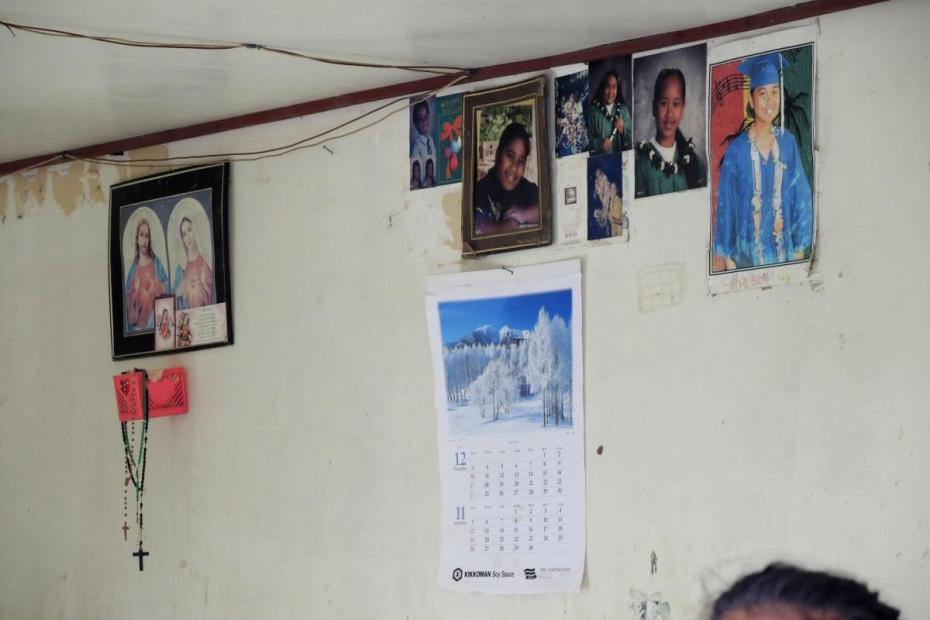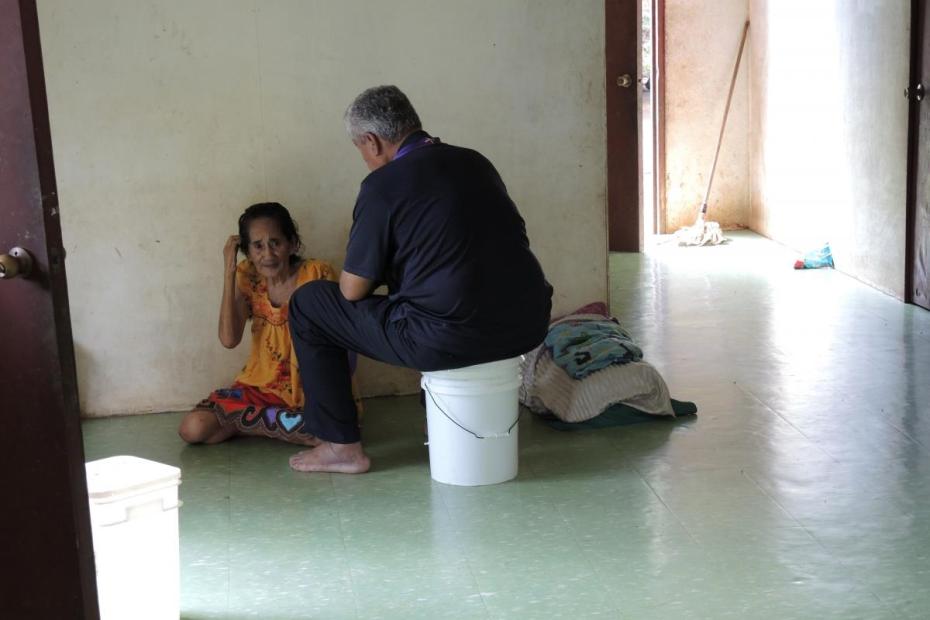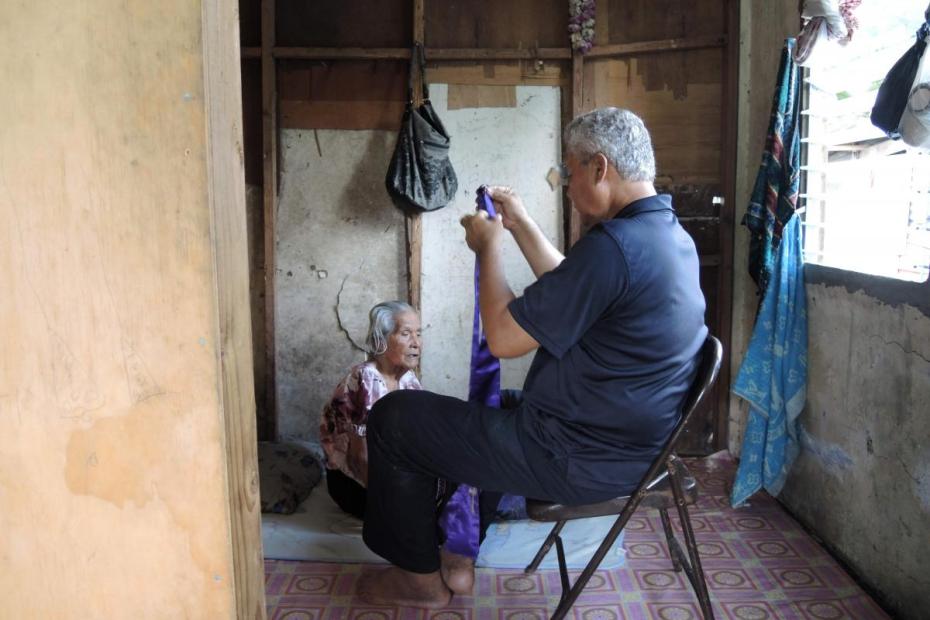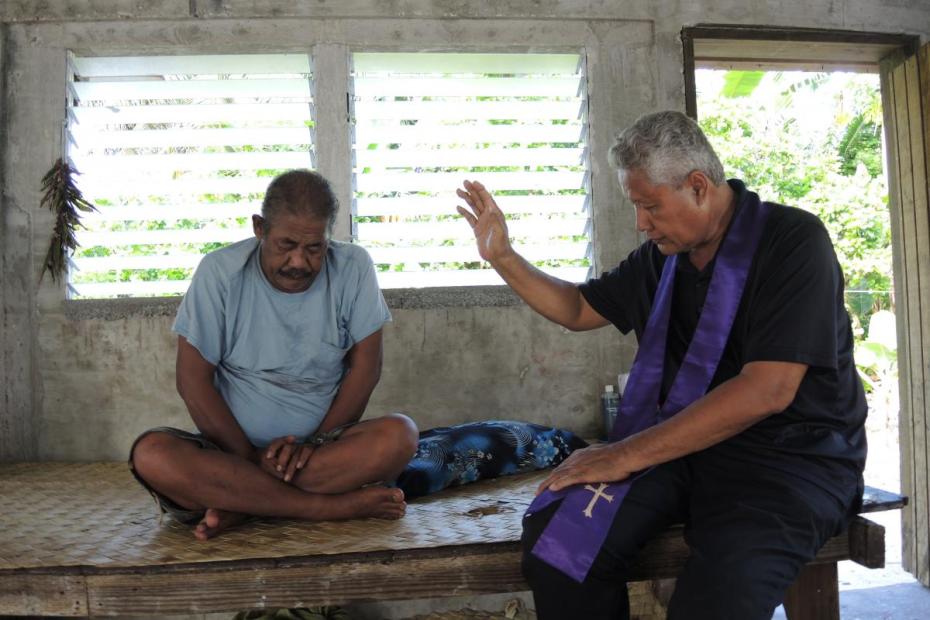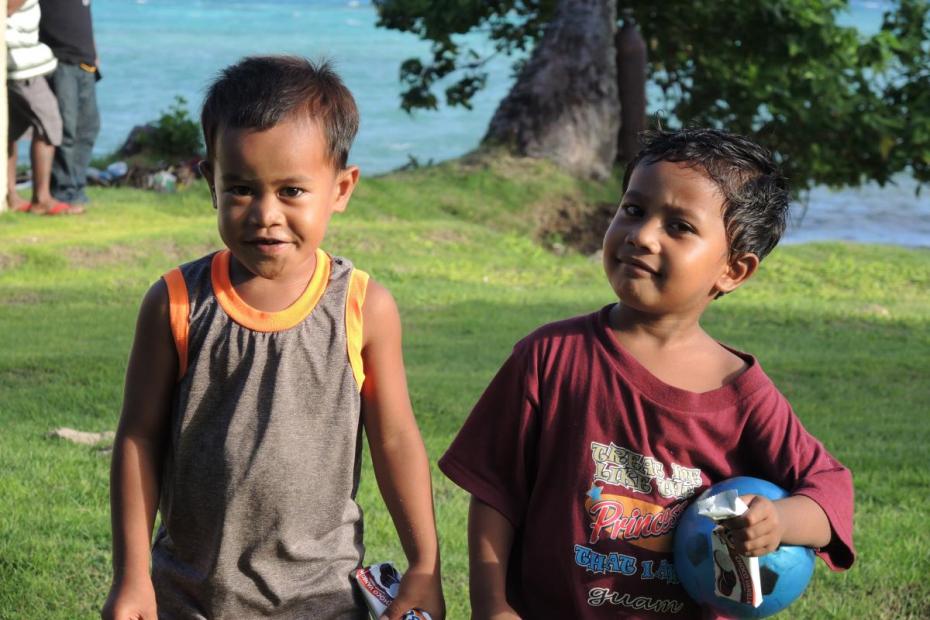Because Chuukese culture is as communal as it is, Catholic life centers on shared activities, not on solitude. Francis X. Hezel, S.J., reports, “In all my years on the islands I never recall hearing a Micronesian say that he had to be alone to clear his head. If trouble arises, if emotional difficulties beset someone, that person is more likely to find refuge with the family than in solitude.”1
Asked how they pray at home, it’s not surprising that Chuukese interviewees repeatedly cited shared repetition of the Rosary as the most important form of prayer, often at night as a family. “This is the way we grew up,” one said. On Weno, interviewees said that at home it’s common to have a Cross and/or a small altar with a candle in a public area of the house. On Fono, where families are often poorer, one home we visited had a picture of the Immaculate Heart of Mary and the Sacred Heart, but the others were void of any decorations, or any furniture, except, occasionally, a mat or sleeping platform. Sitting and sleeping on mats the floor is still the norm on Fono, and that is how families gather to pray as well.
- 1[Francis X. Hezel, S.J., Making Sense of Micronesia: The Logic of Pacific Island Culture (Honolulu, University of Hawai’i Press, 2013), 39.
